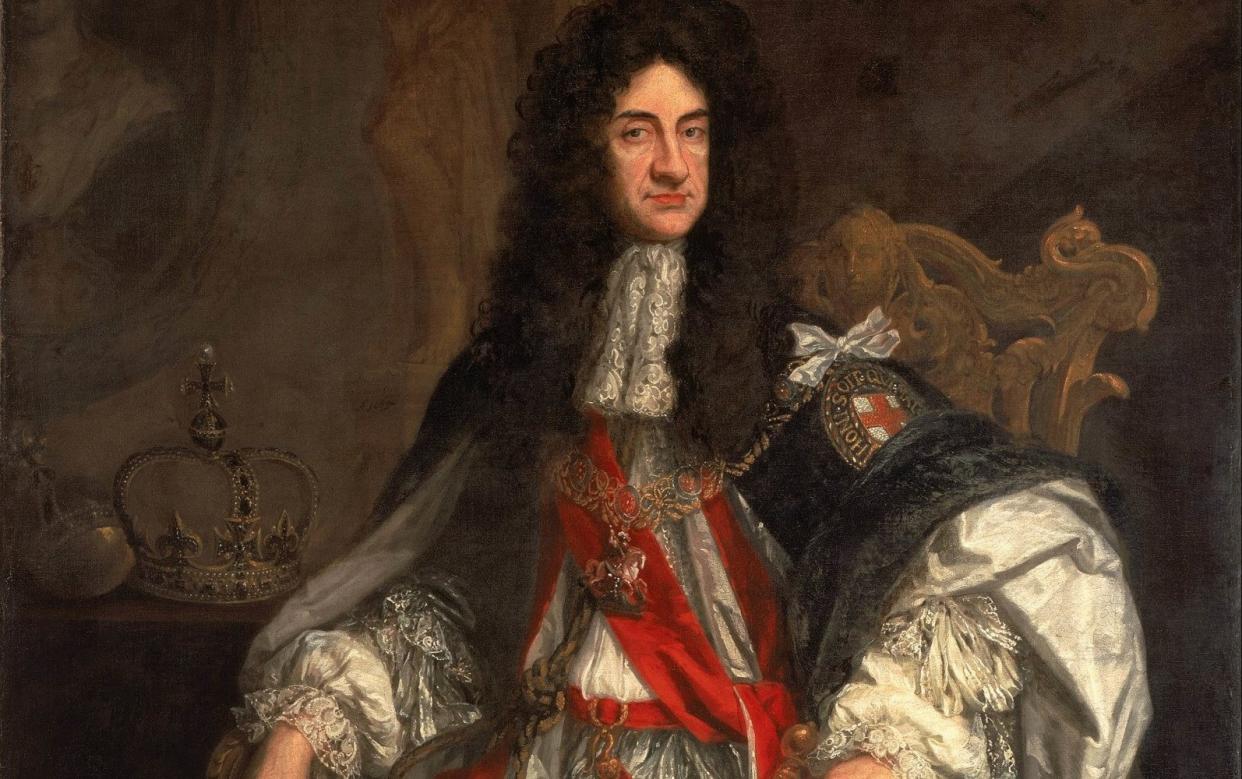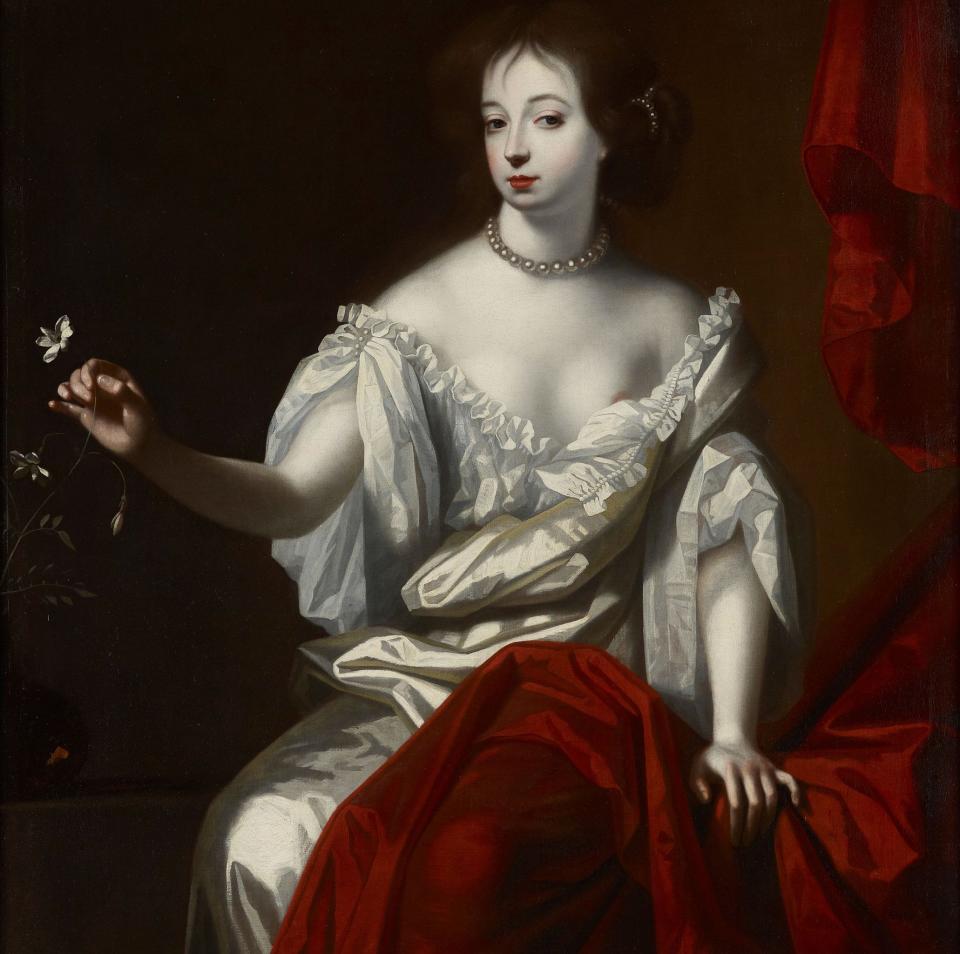Charles II certainly allowed his libido to compromise his judgement

- Oops!Something went wrong.Please try again later.
- Oops!Something went wrong.Please try again later.
On the evening of February 1 1685, following a period of ill-health, Charles II was back on his feet, looking for a hedonistic fix. After dinner, he went to the Whitehall apartments of his mistress-in-chief, Louise de Kérouaille, where luxury and debauchery reigned. A French boy sang love songs, while 20 leading courtiers gambled for £2,000 in gold. A further two of the king’s principal mistresses mingled in the dissolute entourage.
Charles had long been a womaniser. He lost his virginity to the beautiful Christabella Wyndham – his former wet nurse – when he was 15 and she was in her late 30s.
In this week’s episode of our podcast, Rev Richard Coles, one of my fellow Rabbit Hole Detectives, seeking a reason for the Merry Monarch’s success with women, asks me: “Was Charles hot?” And the answer is that he certainly was not. His mother, Queen Henrietta Maria, despaired at his ugliness as a baby. While he would grow to be tall and dark, he was never handsome. But being the king meant he could attract lovers of rare good looks.
Charles’s great love was Lucy Walter, a Welsh beauty whom he met in his late teens. Their son would become the charismatic, doomed, Duke of Monmouth. Lucy would claim – but never prove – that she and Charles had secretly married. She would take other lovers, be rejected by Charles, have her son taken from her, and die in Paris, aged 28, ravaged by venereal disease.
Charles’s best remembered mistress was Nell Gwyn. She was raised in a brothel, sold fruit to theatregoers, and then became an actress, famed for her wit and star quality. Charles was so intrigued by Nell’s charms that he hid a naked portrait of her behind a secret panel in his bedroom.

But being a royal mistress was a competitive business. Nell, worried that she was being edged out by another actress, the exquisite Moll Davis, laced one of Moll’s cakes with an emetic. That night Moll soiled the royal bed sheets and lost the king’s favour.
Charles paraded his mistresses, and often rewarded them with titles, money and fine baubles. This extravagance was much criticised. When the Dutch sailed up the River Medway in 1667 and trounced the English fleet at anchor, the king was castigated for spending money on jewellery for Barbara Castlemaine (who bore him several children), rather than investing in the Navy.
Charles certainly allowed his libido to compromise his judgement. Louis XIV sent the intoxicating de Kérouaille to Charles, knowing he would succumb to her gorgeousness. Louis used de Kérouaille as a spy, who would promote the interests of France and Roman Catholicism.
That debauched soirée of February 1 1685 was Charles’s last. He fell perilously ill in the night and was handed over to royal physicians who, in their ignorance, unwittingly tortured the king to death with a cocktail of agonising ‘cures’.
His subjects, many of whom had criticised Charles as an indolent king, nevertheless mourned his passing, and many referred to him as “Old Rowley” – the name of one of the more fertile royal stallions.
It was apt that his last evening was spent with three of his stable of mistresses.
The Rabbit Hole Detectives is out every Wednesday, wherever you get your podcasts

